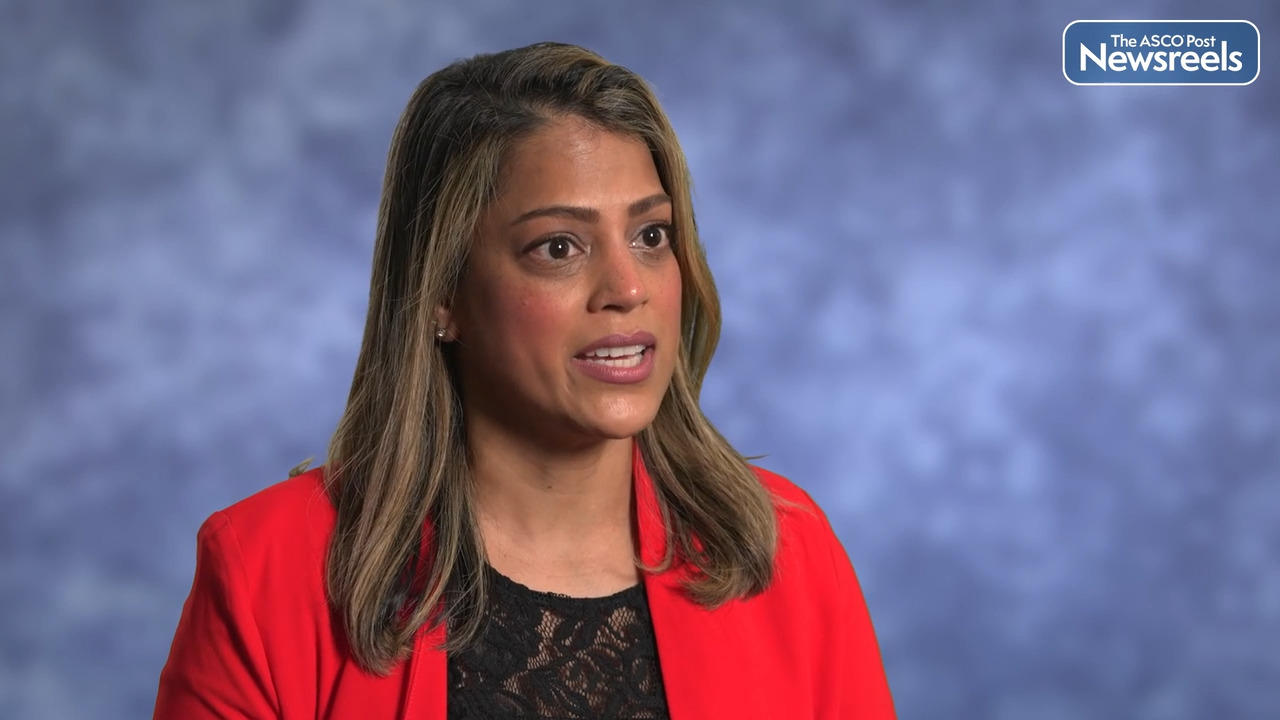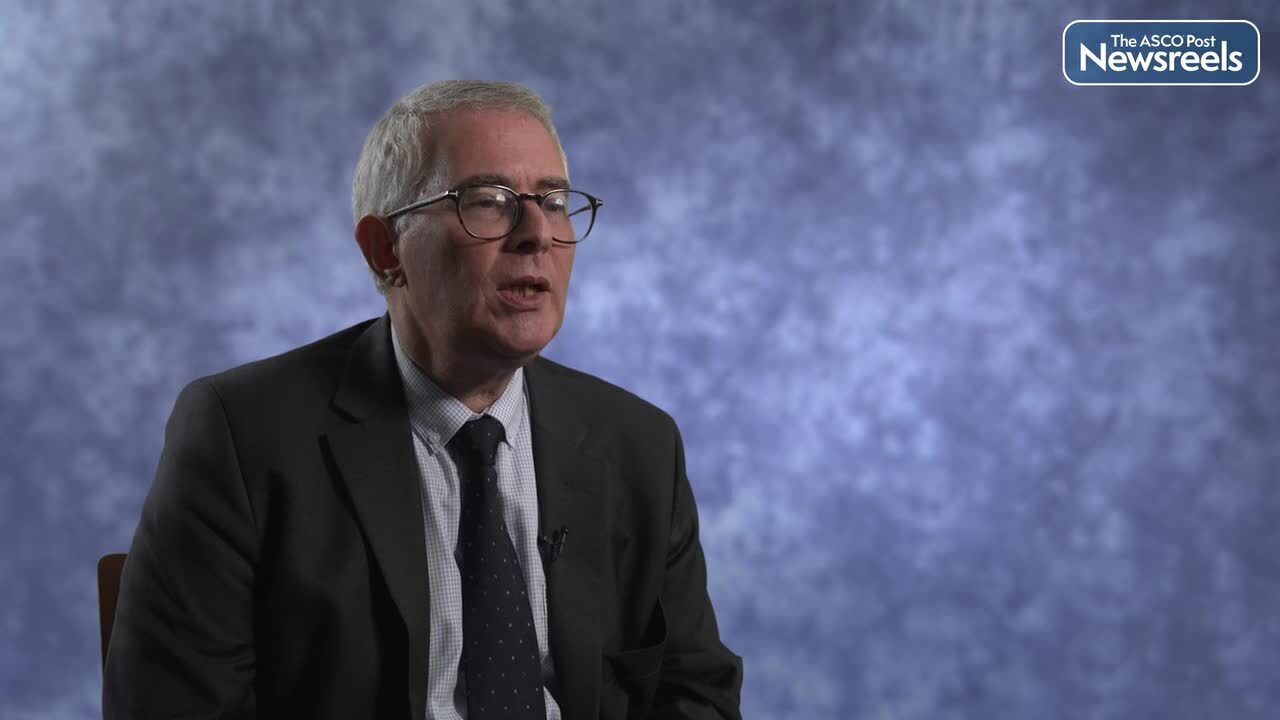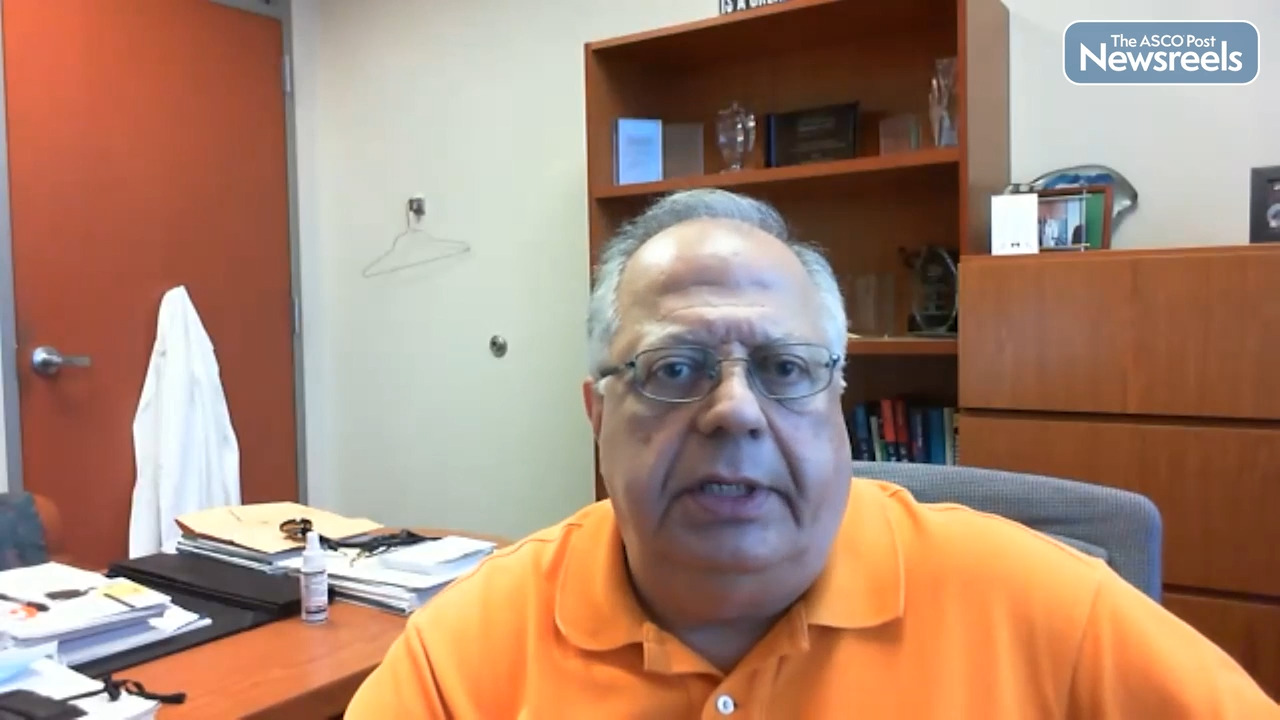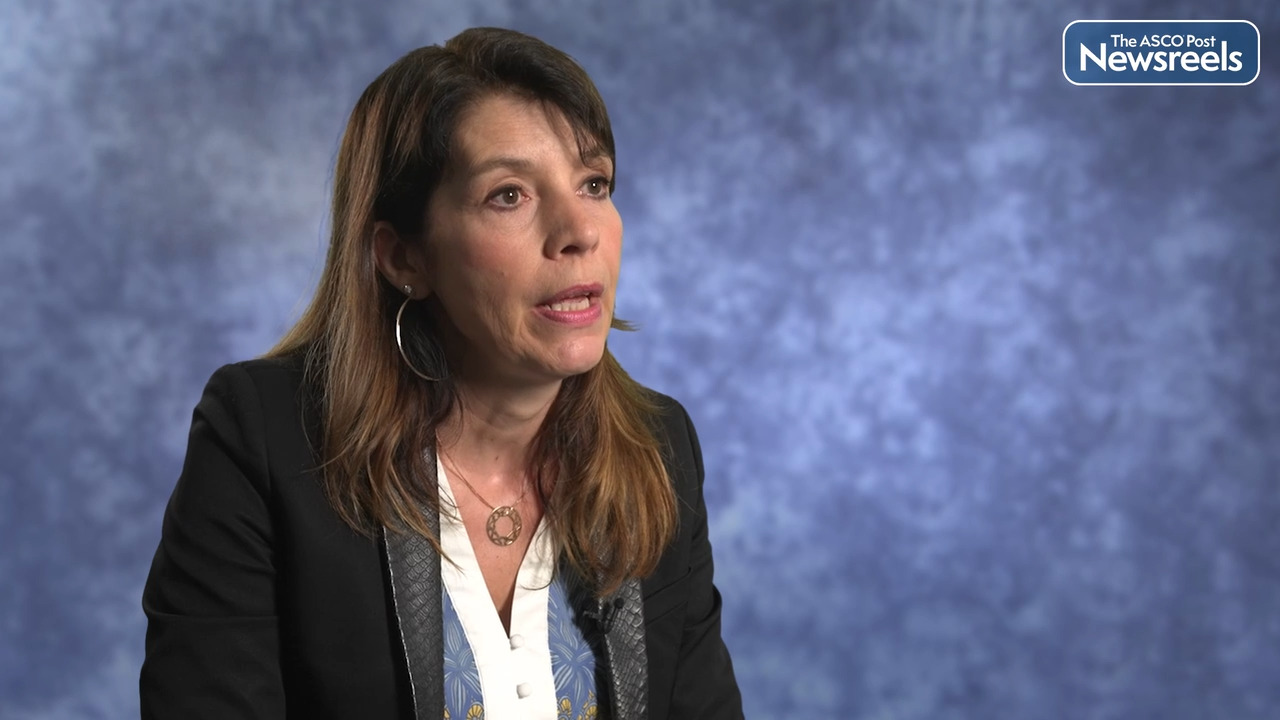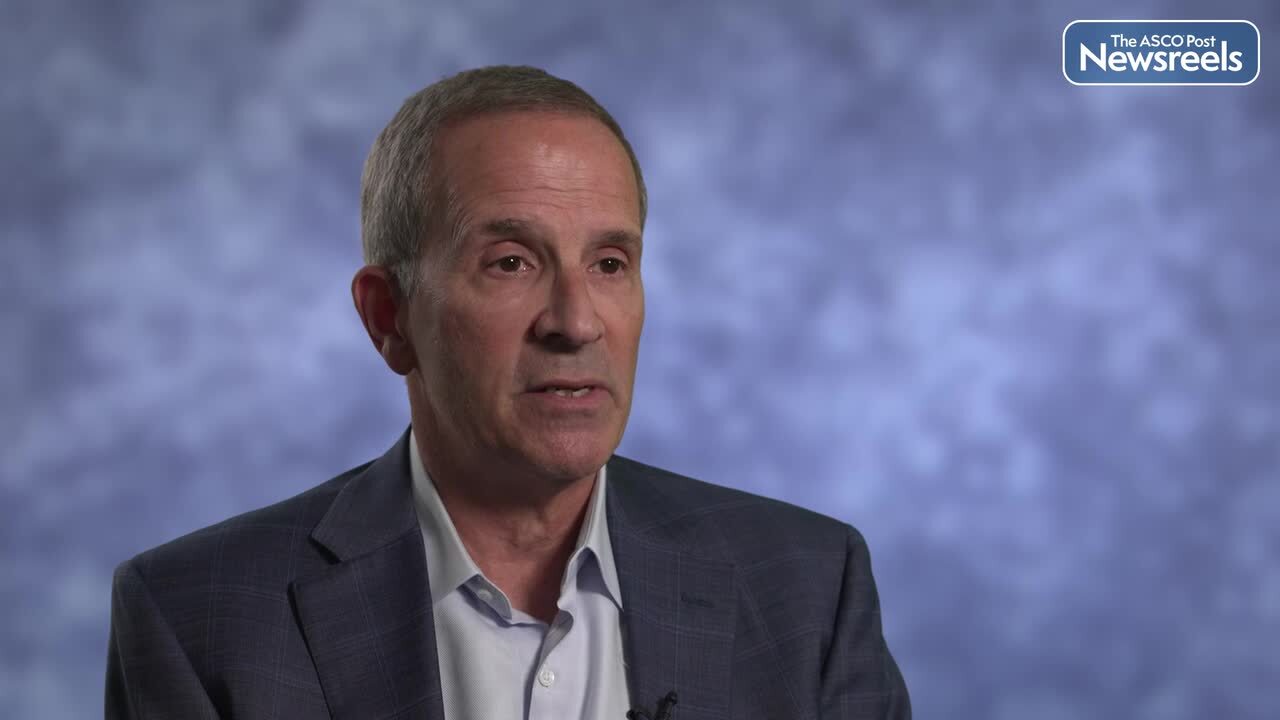Related Videos
Sapna P. Patel, MD, on Melanoma: New Data on Pembrolizumab, Adjuvant vs Neoadjuvant Plus Adjuvant
Sapna P. Patel, MD, of The University of Texas MD Anderson Cancer Center, discusses the latest findings from the SWOG S1801 trial, which showed that using single-agent pembrolizumab as neoadjuvant therapy improved event-free survival compared to adjuvant therapy in high-risk resectable stage III–IV melanoma (Abstract LBA6).
Gérard Zalcman, MD, PhD, on Non–Small Cell Lung Cancer: Phase III Trial Findings on Nivolumab and Ipilimumab
Gérard Zalcman, MD, PhD, of France’s Bichat-Claude Bernard Hospital, Assistance Publique–Hôpitaux de Paris, discusses phase III results from the IFCT-1701 trial, which explored the questions of whether to administer nivolumab plus ipilimumab for 6 months or whether to prolong the treatment in patients with advanced non–small cell lung cancer (Abstract 972O).
Nizar M. Tannir, MD, on RCC: Data on Bempegaldesleukin Plus Nivolumab vs Tyrosine Kinase Inhibitors in Untreated Disease
Nizar M. Tannir, MD, of The University of Texas MD Anderson Cancer Center, discusses phase III findings from the PIVOT-09 study, which compared bempegaldesleukin plus nivolumab with the investigator’s choice of a tyrosine kinase inhibitor (either sunitinib or cabozantinib) in patients with previously untreated advanced renal cell carcinoma (Abstract LBA68).
Christelle de la Fouchardiere, MD, on Pancreatic Ductal Adenocarcinoma: Phase III Trial Results With Gemcitabine Plus Paclitaxel
Christelle de la Fouchardiere, MD, of France’s Centre Léon Bérard, discusses phase III findings from the PRODIGE 65–UCGI 36–GEMPAX UNICANCER study, which evaluated whether the combination of gemcitabine and paclitaxel improves overall survival compared with gemcitabine alone in patients with metastatic pancreatic ductal adenocarcinoma after FOLFIRINOX failure or intolerance (Abstract LBA60).
Neal D. Shore, MD, on Prostate Cancer: Biomarker Analysis, Enzalutamide, and Active Surveillance
Neal D. Shore, MD, of Carolina Urologic Research Center/Genesis Care, discusses new data from the ENACT trial, which showed that patients with prostate cancer and the RNA biomarkers PAM50 and AR-A were likely to have better outcomes with enzalutamide treatment. The results suggest that such RNA biomarkers may help to identify patients who may benefit from enzalutamide treatment compared with active surveillance (Abstract 1385P).
